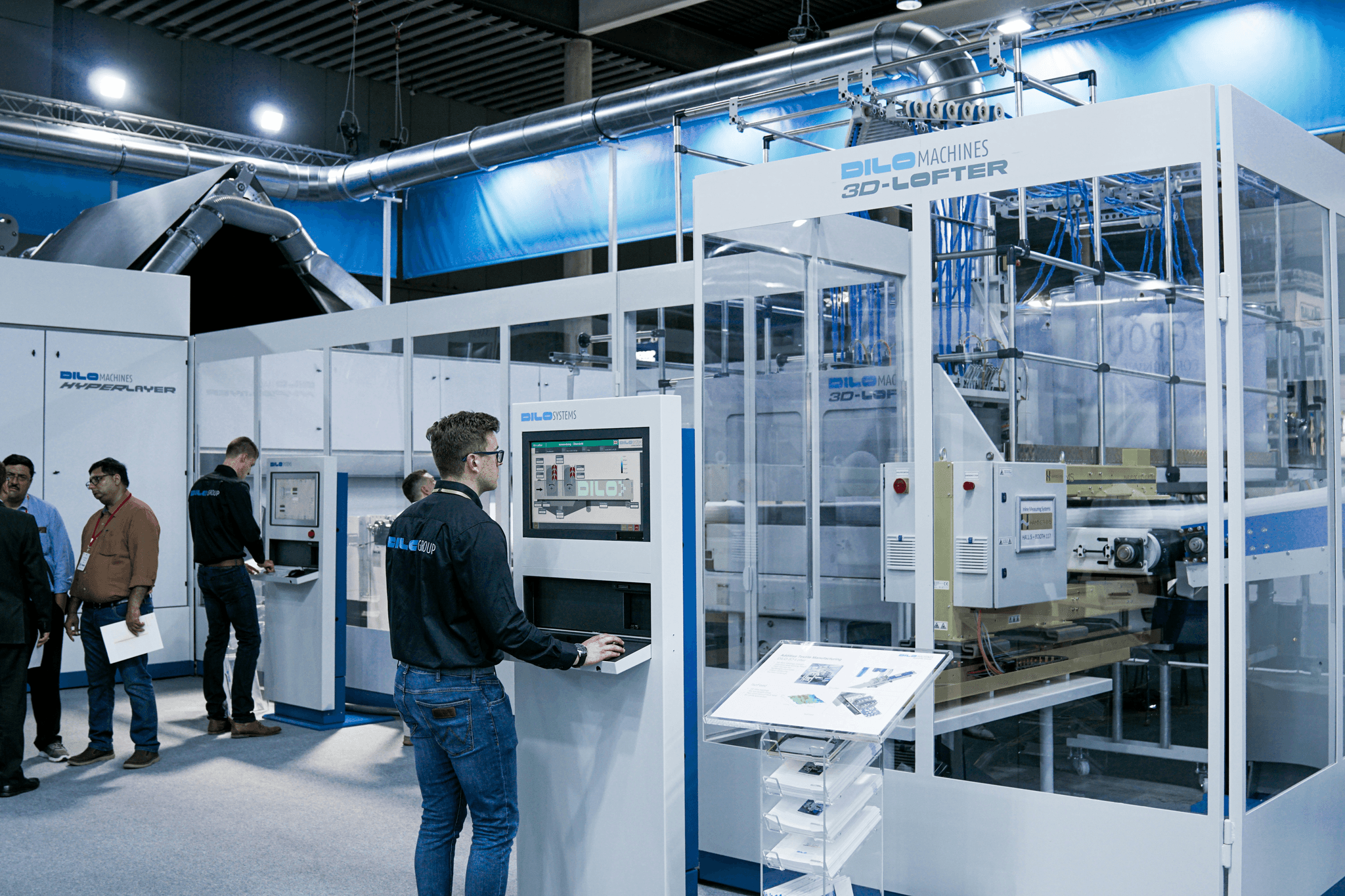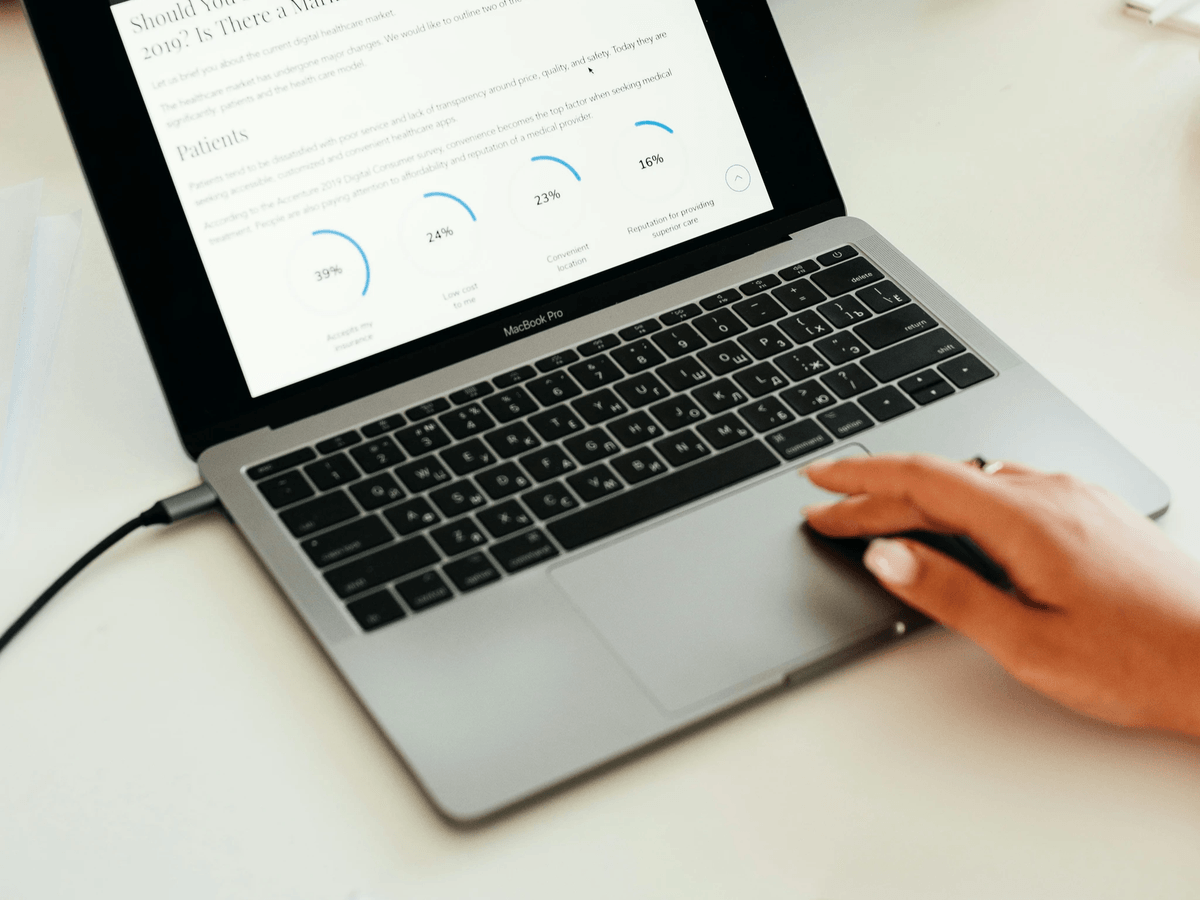Introduction

Understanding Supplier Qualifications
Supplier qualifications encompass a range of criteria that determine whether a potential partner can meet your company's requirements. This includes assessing their manufacturing capabilities, financial stability, and adherence to industry standards. By thoroughly understanding these qualifications, businesses can make informed decisions when selecting suppliers for new product development (manufacturing side) or design side projects.
Importance of Supplier Screening
The importance of supplier screening cannot be overstated; it serves as the first line of defense against potential risks associated with outsourcing production. A comprehensive screening process helps identify red flags related to a supplier's reliability, quality control practices, and overall reputation in the industry. Additionally, effective supplier screening ensures that confidentiality of information is maintained throughout the partnership, safeguarding sensitive business data.
Overview of Investigation Process
The investigation process for supplier qualification typically involves several key steps designed to provide a holistic view of the potential partner’s operations. Initially, businesses should focus on verifying essential documentation such as licenses and certifications before delving deeper into their history and ownership structure. Following this groundwork, companies can assess manufacturing capabilities and evaluate purchasing materials & components strategies to ensure compatibility with their project goals.
Researching the Supplier's Background

Verifying Business Licenses
The first step in verifying a supplier's qualifications is to check their business licenses. This involves confirming that they are legally registered and authorized to operate in their respective industry, especially when investigating China supplier qualifications. A legitimate license indicates compliance with local regulations and can be a strong indicator of reliability.
Additionally, reviewing licenses can help you identify any potential red flags, such as expired or revoked permits. If a supplier cannot provide valid documentation, it raises questions about their credibility and may signal deeper issues within their operations. Ultimately, this verification process lays the groundwork for further investigation into their manufacturing capabilities and practices.
Analyzing Company History
Delving into a company's history is another pivotal part of your investigation process. Understanding how long the supplier has been in business can provide insights into their experience and stability within the market—key factors when considering new product development (manufacturing side). A well-established company often has proven processes in place that contribute to quality assurance.
Moreover, analyzing past performance through customer reviews or case studies allows you to gauge satisfaction levels among previous clients. This information can inform your decision-making regarding whether this supplier aligns with your goals for confidentiality of information and overall partnership success. Remember, a solid company history often correlates with reliability in purchasing materials & components.
Understanding Ownership Structure
The ownership structure of a company plays a significant role in assessing its legitimacy and operational integrity during your supplier screening & qualification process. Knowing who owns the company—and any affiliations they may have—can help clarify potential biases or conflicts of interest that could affect business dealings. For example, if key stakeholders have experience in new product development (design side), it may enhance the company's innovation capabilities.
Furthermore, understanding whether the ownership is private or publicly traded can influence transparency levels regarding financial health and operational practices. If you find complexities in ownership—like multiple subsidiaries or foreign investments—it’s essential to dig deeper into how these relationships impact production quality and compliance standards as part of your overall evaluation strategy.
Assessing Manufacturing Capability

Understanding how to investigate China supplier qualifications requires a deep dive into their production facilities, quality control processes, and new product development strategies. This ensures that they not only meet your current needs but are also equipped for future projects.
Evaluating Production Facilities
The first step in evaluating production facilities is to conduct a thorough site visit or virtual tour if necessary. Look for modern machinery, adequate workforce training, and compliance with safety standards—these factors all contribute to understanding the supplier's overall capability. Additionally, consider their ability to scale operations based on your purchasing materials & components needs; this flexibility can be a game changer when demand spikes.
It's also wise to assess the geographic location of these facilities. Proximity can affect lead times and shipping costs significantly; thus, understanding logistical aspects forms part of the larger picture of how to investigate China supplier qualifications effectively. A well-located facility may also indicate better access to high-quality materials and skilled labor.
Inspecting Quality Control Processes
Quality control processes are the backbone of any manufacturing operation; they ensure that products meet specified standards before they reach you. Investigating these processes involves reviewing documentation related to quality checks and testing protocols—ask for evidence of certifications that validate their adherence to industry standards as part of your supplier screening & qualification strategy.
Engaging with the team responsible for quality assurance can offer insights into their practices as well as any challenges they've faced in maintaining quality over time. Understanding how they manage defects or customer complaints will give you confidence in their commitment to excellence—essential when considering new product development (manufacturing side) initiatives.
A robust quality management system should include regular audits and employee training programs aimed at continuous improvement. If a supplier lacks this framework, it could signal potential risks down the line—something you'll want to avoid when investing in long-term partnerships.
Understanding New Product Development (manufacturing side)
New product development (manufacturing side) is where creativity meets practicality; it's crucial for staying competitive in today’s fast-paced market environment. When assessing suppliers, inquire about their R&D capabilities and how they integrate feedback from clients into their manufacturing processes—it’s an essential aspect of effective collaboration during product launches or modifications.
Understanding how suppliers approach prototyping can provide valuable insight into their innovative capacity as well as timelines for delivery. A strong focus on new product development means that they're likely invested in improving efficiency while maintaining high standards—a win-win scenario for both parties involved.
Lastly, be sure to discuss confidentiality of information regarding proprietary designs or formulas during these conversations about new products. Establishing clear agreements upfront will foster trust and protect your intellectual property while allowing both parties room for creative exploration without fear of breaches.
Checking Compliance and Certifications

Ensuring that your supplier is compliant with industry standards and holds the necessary certifications is crucial in the supplier screening & qualification process. This not only guarantees that they meet regulatory requirements but also protects your business from potential legal pitfalls. In this section, we will delve into understanding relevant standards, identifying industry certifications, and the importance of engaging AC&E for legal verification.
Understanding Relevant Standards
When investigating China supplier qualifications, it's essential to grasp the relevant standards that govern their operations. These standards often vary by industry but generally include safety, quality, and environmental regulations that suppliers must adhere to. Familiarizing yourself with these benchmarks allows you to assess whether a supplier can meet your expectations for new product development (manufacturing side) while ensuring compliance with local and international laws.
Moreover, understanding these standards can help you avoid partnerships with suppliers who cut corners or fail to meet basic operational requirements. It’s not just about ticking boxes; it’s about fostering a culture of quality assurance within your supply chain that aligns with your brand values. Ultimately, this knowledge equips you with the tools needed to make informed decisions during the supplier screening & qualification process.
Identifying Industry Certifications
Industry certifications are badges of honor for suppliers; they demonstrate commitment to quality and adherence to established guidelines in their field. When exploring how to investigate China supplier qualifications, look for certifications such as ISO 9001 for quality management systems or ISO 14001 for environmental management systems. These certifications serve as a reliable indicator of a supplier's capability in both new product development (design side) and manufacturing processes.
In addition to general certifications, consider specific industry-related credentials that may apply based on your sector—such as GMP (Good Manufacturing Practices) in pharmaceuticals or CE marking in electronics. Recognizing these distinctions will enhance your ability to screen potential partners effectively while ensuring they have proven track records of compliance and excellence in their respective fields. Remember, a certified supplier is often more trustworthy when it comes to confidentiality of information regarding proprietary designs or sensitive data.
Engaging AC&E for Legal Verification
Even after identifying relevant standards and industry certifications, it’s wise not to go it alone—this is where engaging AC&E for legal verification comes into play. They specialize in reviewing contracts and compliance documents while providing insights into any potential red flags associated with a particular supplier's legal standing or history. This step is invaluable when navigating the complexities involved in purchasing materials & components from overseas suppliers.
Legal experts can help ensure that all aspects of confidentiality of information are adequately addressed within agreements like NDAs (Non-Disclosure Agreements), safeguarding your intellectual property during negotiations or collaborations on new product development (manufacturing side). By having AC&E validate compliance claims made by prospective suppliers, you significantly reduce risks related to non-compliance which could lead to costly repercussions down the line.
In conclusion, checking compliance and certifications should be an integral part of any thorough investigation into potential suppliers—especially when considering how to investigate China supplier qualifications effectively. With an understanding of relevant standards, identification of key industry certifications, and assistance from legal experts like AC&E for verification purposes at hand, you'll be well-equipped for successful partnerships moving forward.
Evaluating Confidentiality of Information

In today’s global market, maintaining confidentiality of information is crucial when working with suppliers, especially when investigating China supplier qualifications. A thorough understanding of confidentiality practices can safeguard sensitive details about new product development (manufacturing side) and purchasing materials & components. Ensuring that your supplier respects these principles not only protects your intellectual property but also fosters trust in the relationship.
Importance of NDA Agreements
Non-Disclosure Agreements (NDAs) are essential tools for protecting confidential information during the supplier screening & qualification process. By requiring potential suppliers to sign an NDA, you create a legal obligation for them to keep proprietary information under wraps—especially details concerning new product development (design side). This agreement serves as a clear boundary, ensuring that any sensitive data shared during discussions remains confidential and secure.
Moreover, NDAs can help mitigate risks associated with sharing trade secrets or innovative designs that could be misappropriated by competitors. When investigating China supplier qualifications, it’s vital to emphasize the importance of these agreements in your negotiations. This proactive approach not only protects your interests but also sets a professional tone for the partnership.
Understanding Data Protection Practices
Understanding data protection practices is paramount when evaluating potential suppliers' ability to safeguard confidential information. This includes assessing how they handle data storage, access controls, and compliance with relevant regulations such as GDPR or CCPA. Suppliers should have robust policies in place to protect sensitive business information related to purchasing materials & components and new product development (manufacturing side).
You’ll want to inquire about their cybersecurity measures and incident response protocols as part of your due diligence process during supplier screening & qualification. A reliable supplier should demonstrate transparency about their data protection strategies and be willing to share their security certifications or audits upon request. This level of diligence ensures that both parties are aligned on protecting confidential information throughout the collaboration.
Assessing Information Security Measures
When evaluating a supplier's commitment to confidentiality, it’s crucial to assess their overall information security measures comprehensively. Investigate whether they employ encryption technologies for data transmission and storage as well as regular security audits to identify vulnerabilities within their systems. In addition, consider how they train employees on handling sensitive information related to new product development (design side) and other proprietary processes.
Furthermore, understanding how a supplier responds to security breaches can provide insight into their reliability in safeguarding confidential information over time. During your investigation into China supplier qualifications, it's important not just to take their word for it but rather seek proof through documentation or third-party assessments that validate their claims regarding security practices. Ultimately, thorough evaluation will ensure that you choose a partner who prioritizes confidentiality just as much as you do.
Analyzing Cost and Pricing Structures

When it comes to supplier screening & qualification, understanding cost and pricing structures is crucial for making informed decisions. A deep dive into this area can unveil potential red flags or opportunities for cost savings that might otherwise go unnoticed. This section will guide you through comparing supplier quotes, understanding purchasing materials & components, and evaluating payment terms.
Comparing Supplier Quotes
Comparing supplier quotes is like shopping for the best deal on a new gadget; you want to ensure you’re getting the best value without sacrificing quality. When investigating China supplier qualifications, it’s essential to gather quotes from multiple suppliers to establish a baseline for pricing and services offered. Look beyond just the numbers; consider what each quote includes in terms of shipping, warranties, and after-sales support—often these factors can significantly impact overall costs.
Moreover, be wary of prices that seem too good to be true; they could indicate hidden costs or subpar quality. In your analysis, take into account the nuances of new product development (manufacturing side) as well; sometimes higher initial costs can lead to better long-term outcomes if they ensure superior manufacturing capabilities. Ultimately, a thorough comparison will help ensure that your chosen partner aligns with both your budget and quality expectations.
Understanding Purchasing Materials & Components
Understanding how suppliers source their materials & components is vital when assessing their overall reliability and capability in new product development (design side). This knowledge can illuminate potential risks related to supply chain disruptions or inconsistencies in material quality that could affect production timelines or product integrity. Ask suppliers about their sourcing practices—do they use local materials or import them? What certifications do these materials have?
Additionally, inquire about their relationships with manufacturers and distributors—strong partnerships often lead to more stable pricing and availability of necessary components. By digging into these details during your supplier screening & qualification process, you’ll gain insights into whether a supplier has the infrastructure in place to support your needs effectively over time.
Evaluating Payment Terms
Evaluating payment terms is another critical piece of the puzzle when investigating China supplier qualifications. Flexible payment options can alleviate cash flow pressures while also indicating a supplier's confidence in their products and services. It's important not only to examine the payment structure but also any associated penalties for late payments or discounts available for early settlements.
Moreover, consider how these terms align with your own financial strategies—will they allow you enough time between receiving goods and making payments? Such considerations are especially relevant when engaging in new product development (manufacturing side), where upfront costs may be significant but manageable with favorable payment arrangements. A thorough evaluation will help mitigate risks while fostering a healthy business relationship.
Conclusion

In the world of global commerce, knowing how to investigate China supplier qualifications is no small feat. The process of supplier screening and qualification is crucial for ensuring that your business partners can meet your expectations in terms of quality, compliance, and confidentiality of information. By implementing a thorough investigation process, you not only mitigate risks but also pave the way for successful collaborations that can drive growth and innovation.
Key Takeaways on Supplier Investigation
When embarking on your journey to investigate potential suppliers, remember that diligence pays off. Key takeaways include the importance of verifying business licenses and understanding ownership structures to ensure you're dealing with reputable entities. Additionally, assessing manufacturing capabilities—especially in new product development (manufacturing side)—is vital for aligning production processes with your company's standards.
Furthermore, don't overlook the significance of checking compliance and certifications relevant to your industry. This step not only reinforces trust but also ensures that suppliers adhere to necessary regulations. Lastly, understanding how to evaluate cost and pricing structures can lead to better negotiations and ultimately enhance your bottom line.
Final Thoughts on Supplier Screening & Qualification
Supplier screening & qualification should be viewed as an ongoing commitment rather than a one-time task. Building strong relationships with suppliers requires continuous evaluation, especially as markets evolve and new product development (design side) becomes more complex. By maintaining open lines of communication and regularly reassessing supplier performance, businesses can adapt swiftly to changes in demand or supply chain disruptions.
Moreover, investing time in understanding the purchasing materials & components used by potential suppliers adds another layer of assurance regarding quality standards. This proactive approach helps businesses avoid pitfalls associated with subpar products or services while fostering long-term partnerships built on trust.
Why Partnering with Legal Experts Matters
Navigating the intricacies involved in supplier investigations often calls for specialized knowledge—this is where partnering with legal experts comes into play. Legal professionals can assist you in drafting robust NDA agreements that protect confidentiality of information throughout the engagement process. Their expertise ensures compliance with local laws and regulations while helping you understand potential liabilities associated with supplier relationships.
Moreover, legal experts can provide valuable insights into industry certifications relevant to your field—information critical when evaluating suppliers’ capabilities against regulatory benchmarks. Ultimately, leveraging their knowledge not only streamlines your investigation but also fortifies your position as a well-informed partner ready to tackle challenges head-on.
